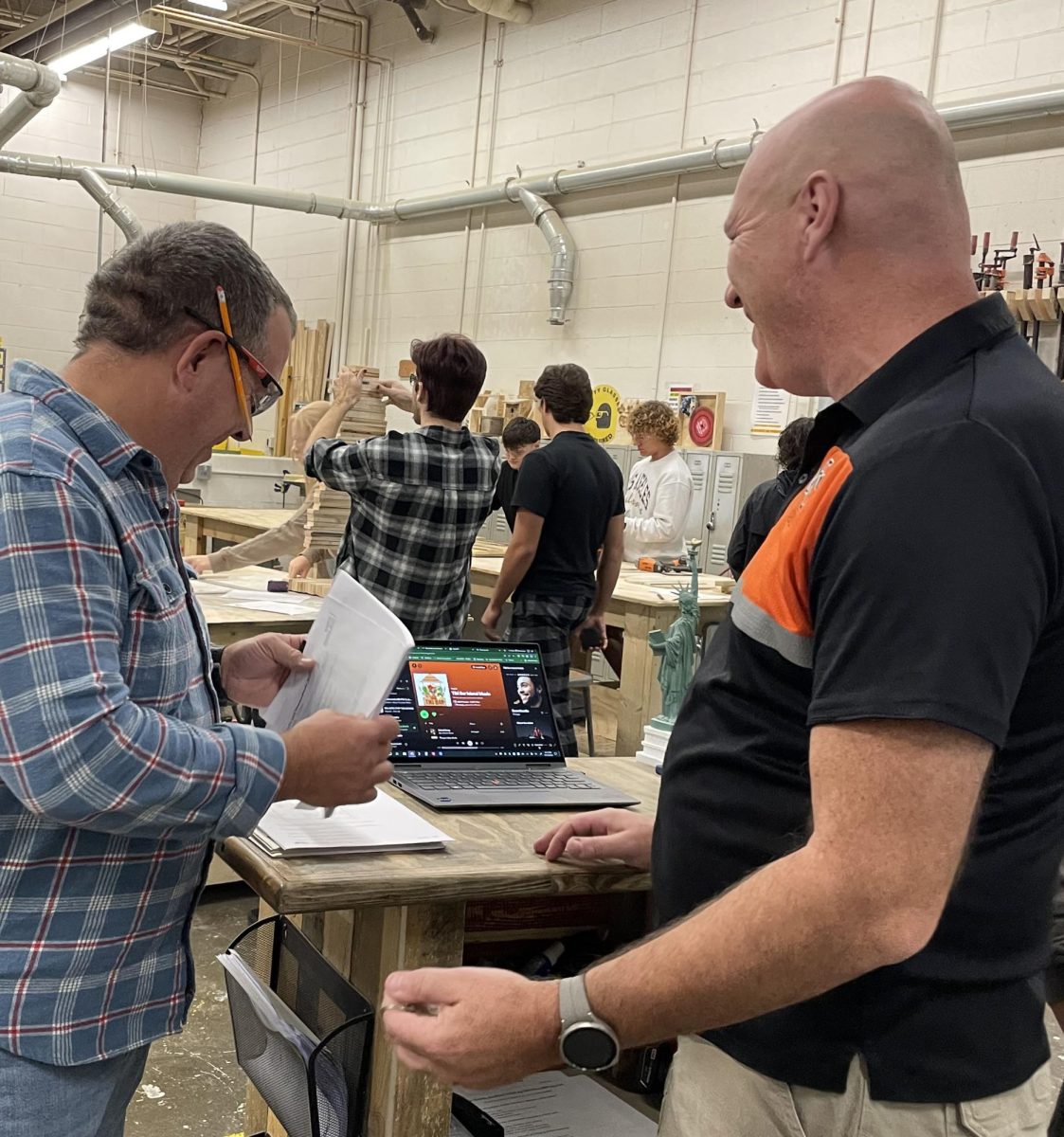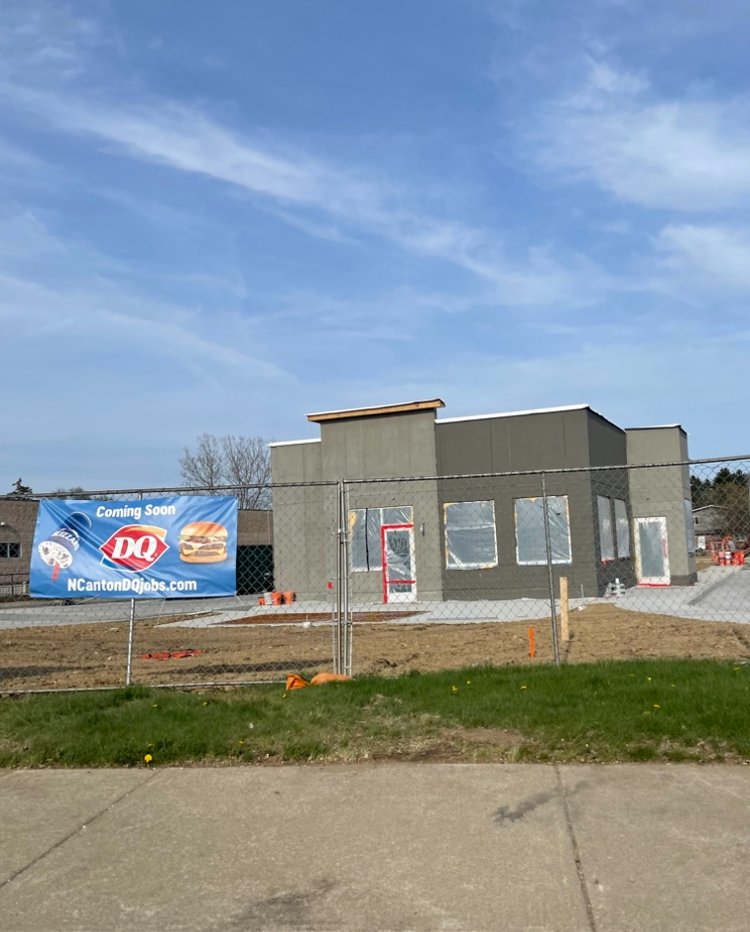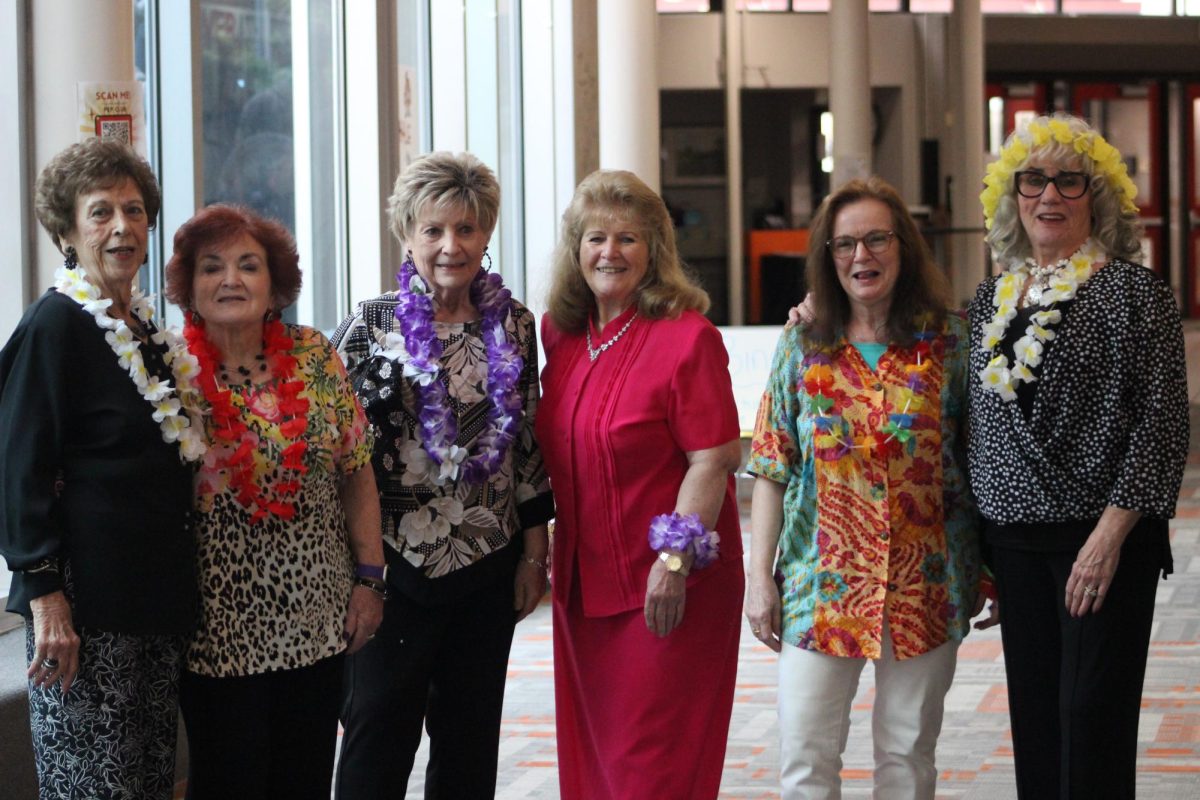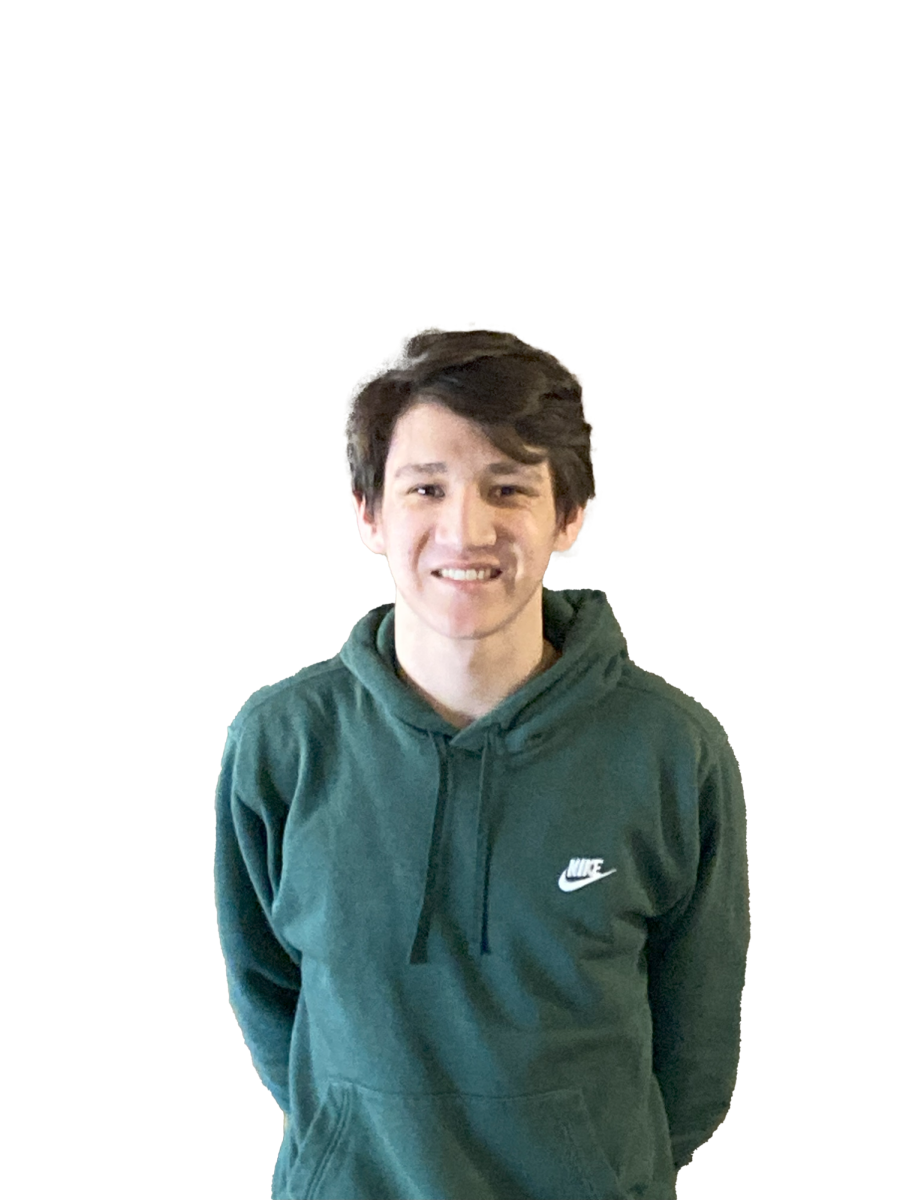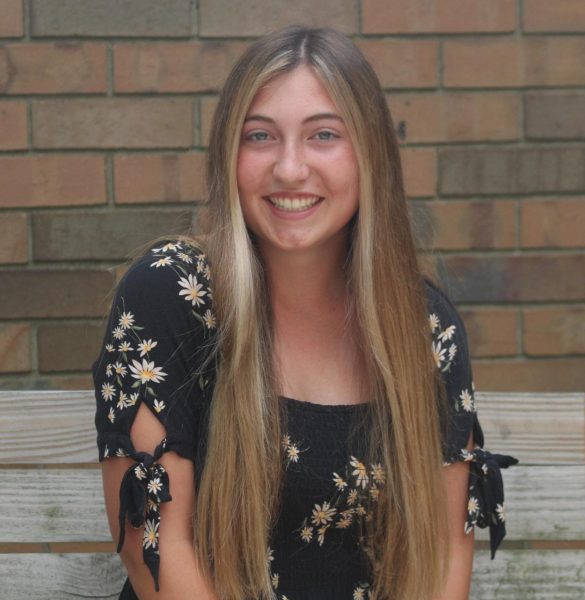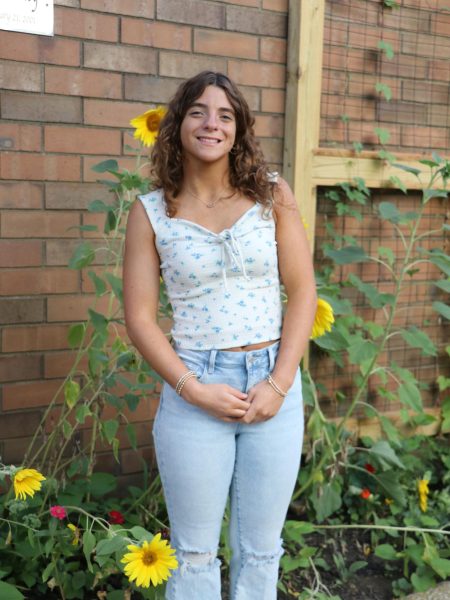Starting somewhere new is never easy. It is often intimidating and stressful. Hoover has an exceptional teacher mentorship program for all incoming teachers, whether it is their first year teaching or not. Educators do more than teach the students — they teach and learn from each other. In the teacher mentoring program, seasoned teachers advise those new to the district, sharing their wisdom, igniting a passion for teaching and raising the bar for student success in North Canton.
English teacher Mrs. Gretchen Leckie-Ewing and art teacher Mr. Chris Triner spearhead the mentorship program. They are responsible for making sure each new teacher is assigned a qualified mentor, and the mentors themselves must complete a training program. The State of Ohio requires school districts to provide new teachers with a one-on-one mentor for the first two years to help guide them through the Resident Educator Summative Assessment [RESA], a program new teachers must pass to ensure they obtain their licensure. According to the Ohio Department of Education, the Ohio Resident Educator [RE] program, of which RESA is a part, began in 2011.
“[It] is a comprehensive, two-year initiative to assist beginning teachers with mentoring and professional development as they start their education careers,” according to the Ohio Department of Education. “The RE Program is designed to improve teacher retention, enhance teacher quality, and result in improved student achievement. The RE Program can be envisioned as a professional pathway to continued professional learning, leading educators to more effective practices and excellence in teaching.”
Culinary Arts teacher Mr. Phil Ogilvie has been a mentor teacher at Hoover since the 2017-18 school year. “The mentor program is a great tool for first and second year teachers,” he said. “They are already so busy in building their programs and their classes, some are still taking additional college courses, and they all have yearly steps they have to meet for the RESA program. The job of a mentor is to guide them through all of that so they don’t feel overwhelmed.”
Ogilvie participated in a different program when he became an educator and compared his experience to the RESA program. “While I did have a mentor for a year, there is more of a support system in place now,” he said. “Assessing the knowledge and skills of prospective teachers and other assessment tools to ensure teachers meet certain competency standards are important; however, RESA provides the training and experience. It really helps individuals become teachers.”
Being a teacher, in essence, is being a mentor — a mentor to students. Students connect and look up to their teachers; they are often some of their biggest role models. Starting a new role as a teacher is not easy. One graduates from being the student and learning the ins-and-outs of being a teacher, to actually becoming the teacher. Education courses cannot fully prepare someone to be a teacher, but having the comfort of knowing someone is there to listen and give you advice can make it all the much easier, according to science teacher Mr. Destin Heasley.
“[In the RESA program], we have to film ourselves teaching, and write in response to several prompts reflecting on how our lesson that we filmed went,” he said. “There is a lot of stress that comes with becoming a new teacher, learning how to prepare for classes, work with kids, parents, etc. Having a group or an individual to meet and help is very beneficial.”
Theatre Tech teacher Miss Morgan Brown, who is in year two of RESA, agreed and explained the path of a new teacher and how the program has helped her transition.
“The teacher mentorship program is a wonderful opportunity to connect with an experienced teacher and learn important, Hoover-specific information,” she said. “For new teachers, it can be challenging to navigate all of the elements of a school year, so having one specific person to go to for assistance and guidance is incredibly helpful.”
The mentorship program, which “goes all year, for two years,” according to Leckie-Ewing, allows new teachers to also meet a couple times each year with her and Triner, who then offer suggestions and “talk them through some things.” Not only fresh-out-of-college teachers need guidance. New-to-district teachers may need advice and support from colleagues. Just having someone in their corner can make the transition that much easier — which in turn benefits the students.
“I think North Canton does a better job than lots of other districts because we do what the state requires of us, which is that all people that are new to teaching get a mentor who is trained and can help them do things, learn things, answer questions — but we also give a mentor to people who are just new to us,” Leckie-Ewing said.
Just as teachers invest in their students, teachers that are mentors invest in their mentees. Education is a cycle of listening, learning and applying — and the stage of life one is in determines what this process looks like. For Brown, working in the teacher mentorship program allows her to focus on her love of teaching.
“I am grateful for the opportunity to share the art of theatre with students at North Canton,” she said. “All of my students have shown amazing potential, and we’re already accomplishing great things.” Leckie-Ewing summed up the purpose of the program.
“It is hard to be a first-year teacher,” she said. “It is hard to be new, and so part of it is just to make that hard thing easier. With the ones who are new to teaching, sometimes we will talk about your toolbox not being very full when you start out, you need a lot of strategies. A huge part of this is giving new teachers more strategies, more things to think about, more activities, and perspectives and all sorts of things that might help them become a better teacher.”

